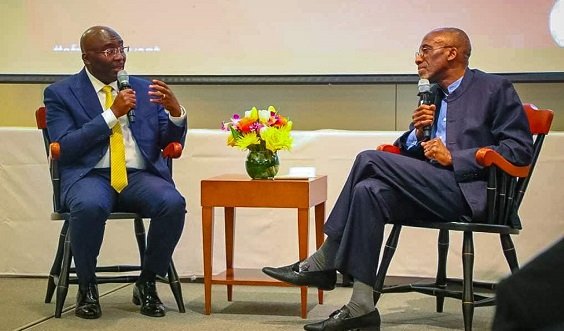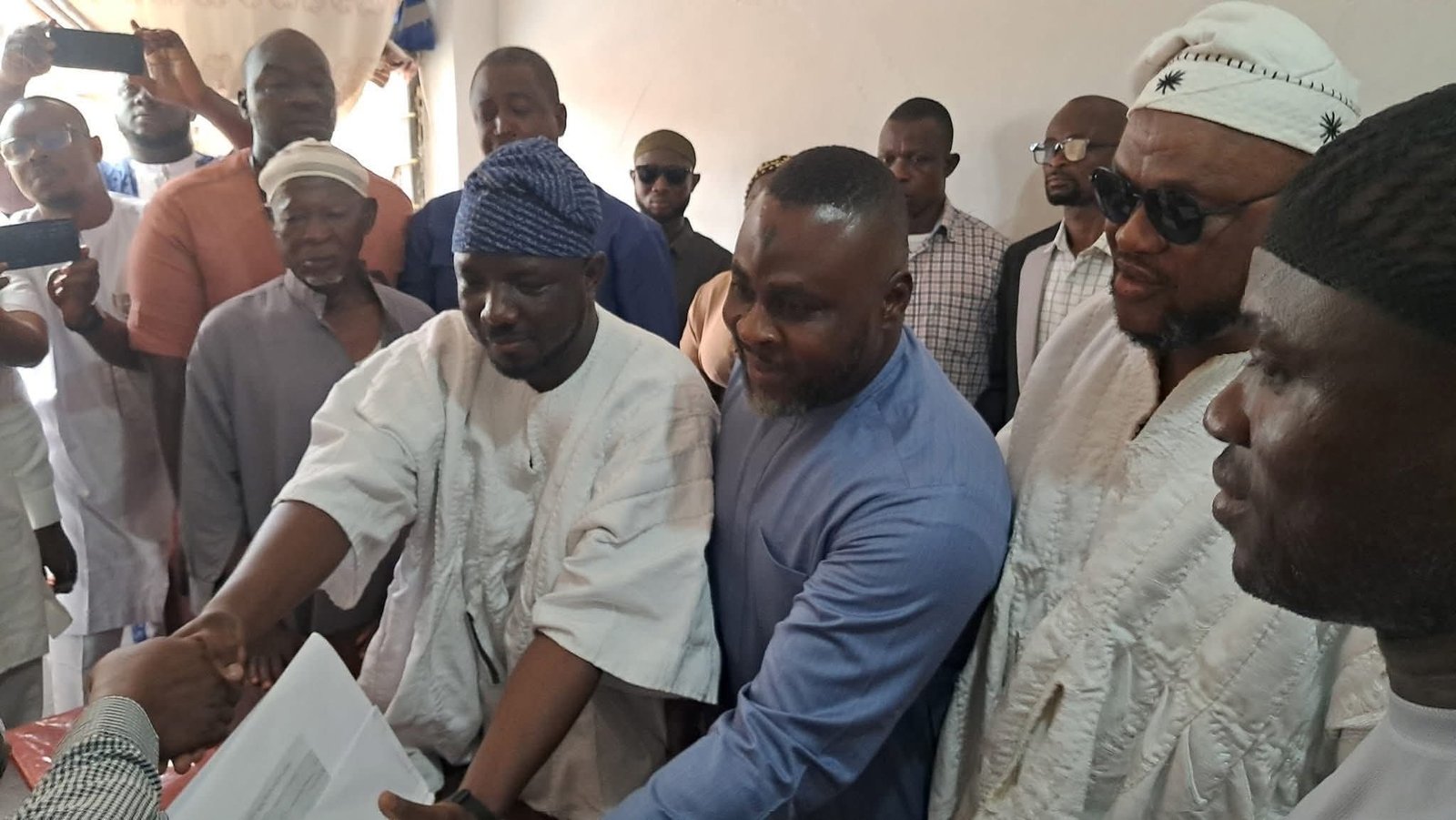Hot!
Africa’s participation in the Fourth Industrial Revolution must be based on data and transparent systems – Dr Bawumia

Vice President Dr Mahamudu Bawumia has said one of the setups African countries face in their attempt to transform their economies is the lack of data and transparent systems.
According to him, most countries in the African continent take decisions in the governance and management of their economies without any proper and consolidated data.
This he noted has resulted in economic policies and decisions not realising the expected outcomes.
Dr Bawumia in an address at the 2023 African Development Conference held at Harvard University in the United States of America said “The reality is that African countries have been trying to transform their economies without data and transparent systems. Governments are taking critical decisions without being informed by the data”.
He added that “When our government assumed office in 2017, we made the ambitious decision to address all the problems of the lack of unique identity, address systems, etc. immediately and simultaneously. The question was what is the best way to do it?
“We decided to quickly transform our economy by leveraging technological innovations as a means to leapfrog the development process, overcome legacy problems, and improve both economic and public sector governance. We chose digitalization as the vehicle and this is why digitalization has been a major area of focus for our government. If data is the new oil, digitization is the most efficient and cost-effective vehicle for generating the data”. Without this data African countries will not be able to effectively participate in the Fourth Industrial Revolution,” he said.
Delving into the key areas of transformation that he noted have been critical to Ghana’s digitisation revolution, Dr Bawumia said the introduction of a biometric national identification system in Ghana has been a game-changer in several ways.
“More than 17 million people (over 80% of the targeted adult population) enrolled in the secured national database. With the Ghana card, the identity of people (even dead people) can be established using their fingerprints. This is one of the most transformational projects implemented under digitalization. We have solved the problem of providing a unique identity to our population. A problem we have lived with since independence 66 years ago. We have also started a pilot and will likely roll out nationwide a system of providing National ID numbers to children at birth from June this year,” he said.
Dr Mahamudu Bawumia mentioned the Property Addressing System, Mobile Money Interoperability, and Digitalized Tax Payment System amongst several other reforms that are driving Ghana’s economic growth.
Hot!
Prof Alidu Seidu files nomination for Tamale Central seat

The newly elected parliamentary candidate of the National Democratic Congress (NDC) for Tamale Central, Prof Alidu Seidu, has submitted his nomination forms to the Electoral Commission.
As of 10:00 a.m. today, he was the only person who had filed to contest the seat.
Nomination of candidates will close at the end of the day.
Associate Professor and Head of the Political Science Department at the University of Ghana Legon, Prof. Alidu Seidu won the National Democratic Congress (NDC) parliamentary primaries in the Tamale Central constituency with a landslide victory.
The elections, supervised by the party’s Elections and IT Directorate in the Northern Region, saw Prof. Seidu poll 840 votes out of the total valid ballots cast.
His closest contender, Lawyer Hanan Gundadow Abdul-Rahaman, secured 536 votes.
The other aspirants could not make significant gains, with Dr. Seidu Fiter obtaining 44 votes, Aliu Abdul-Hamid 23 votes, and the rest recording fewer than 10 votes each.
In all, 1,500 ballots were cast, with 6 ballots rejected and 7 spoilt ballots recorded.
The results were signed and declared by Dr. Arnold Mashud Abukari, NDC Northern Regional Director of Elections and IT.
The National Democratic Congress (NDC) held parliamentary primaries in Tamale Central to choose a candidate for the upcoming by-election following the death of the sitting Member of Parliament, Dr. Ibrahim Murtala Mohammed. Dr. Mohammed, who also served as Minister for Environment, Science, Technology and Innovation, tragically died in a military helicopter crash in the Adansi Akrofuom District on August 6, 2025, alongside seven others.
His passing left the Tamale Central seat vacant, as required by Ghana’s 1992 Constitution.
The Electoral Commission has scheduled the by-election for September 30, 2025. While the NDC moved quickly to open nominations and vet aspirants, the New Patriotic Party (NPP) announced it would not contest the seat, citing the need to respect the somber circumstances and promote national unity.
By: Jacob Aggrey
Hot!
Ghana to locally refine its gold starting October 2025 – Sammy Gyamfi

The Chief Executive Officer of the Ghana Gold Board, Sammy Gyamfi, has announced that plans are far advanced for the establishment of a state-owned gold refinery in the country.
Speaking at the 2025 Minerals and Mining Convention, Mr Gyamfi said the refinery will process locally mined gold into bullion instead of exporting it in its raw state.
According to him, it is unacceptable that Ghana, despite being a leading gold producer in Africa, continues to export raw gold known as dore.
He explained that the Gold Board, working with the Bank of Ghana and local refineries, will from October 2025 begin refining gold locally.
He also disclosed that an ultramodern assay laboratory will be built to ensure international standards in testing gold quality.
Mr Gyamfi noted that the refinery will be wholly state-owned and will help Ghana move away from raw mineral exports to value addition.
This, he said, will boost foreign exchange earnings, create jobs, and position Ghana as a hub for gold refining and jewellery production in Africa.
The CEO stressed that the project forms part of government’s strategy to ensure the country benefits fully from its natural resources and to transform the mining sector into a driver of economic growth.
By: Jacob Aggrey






